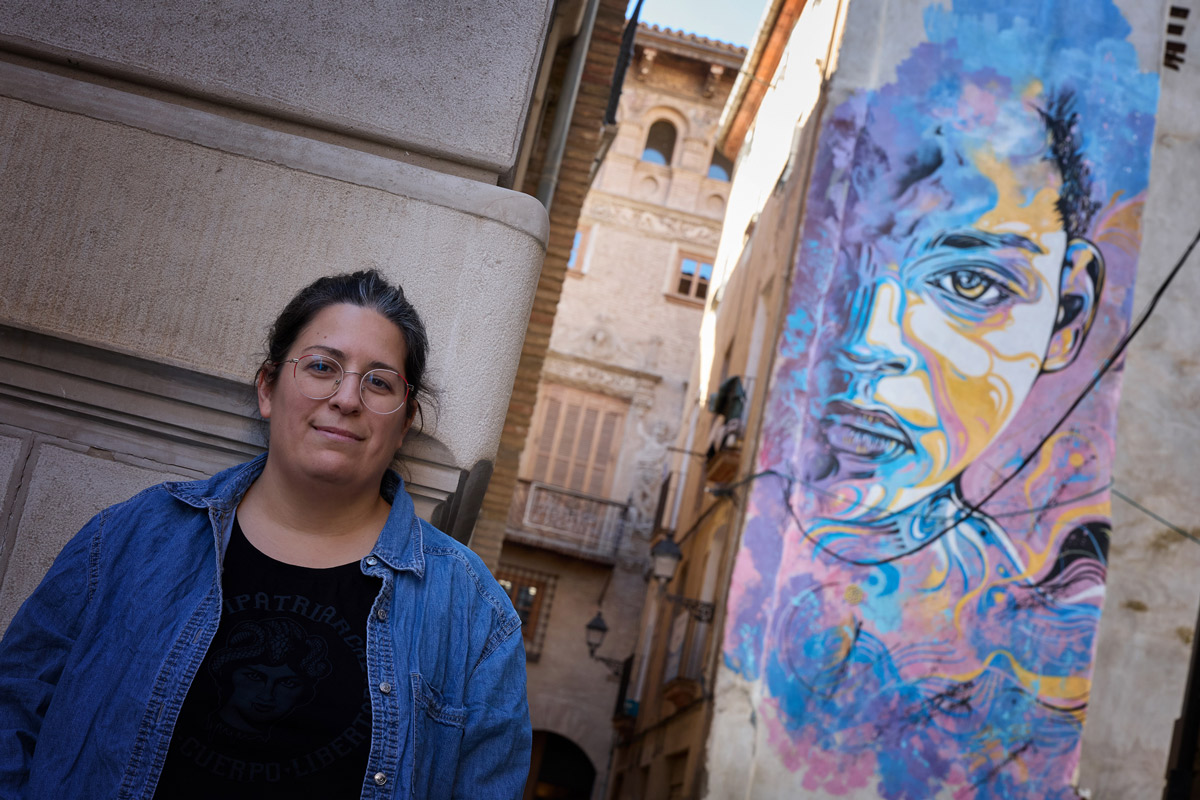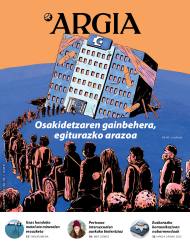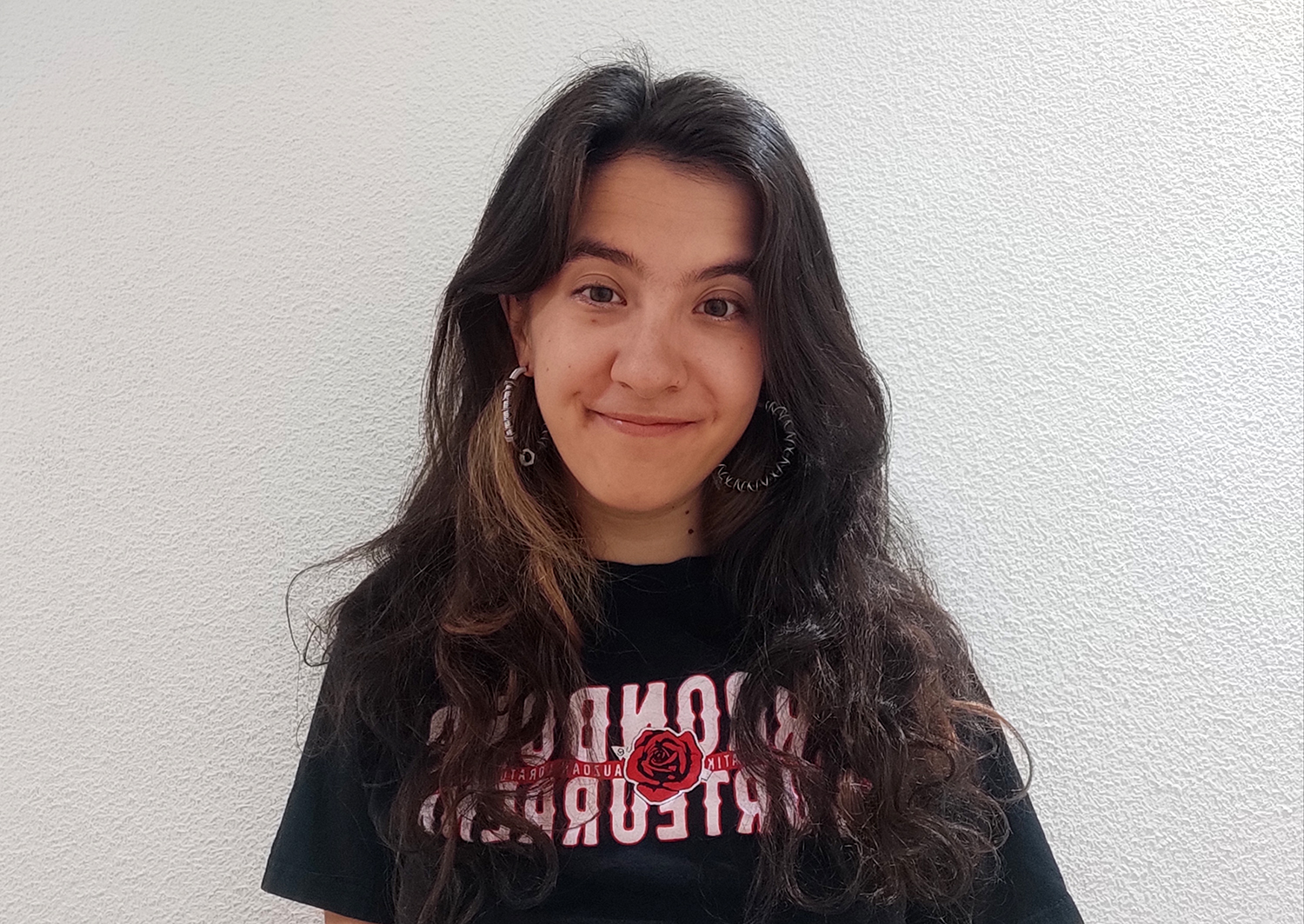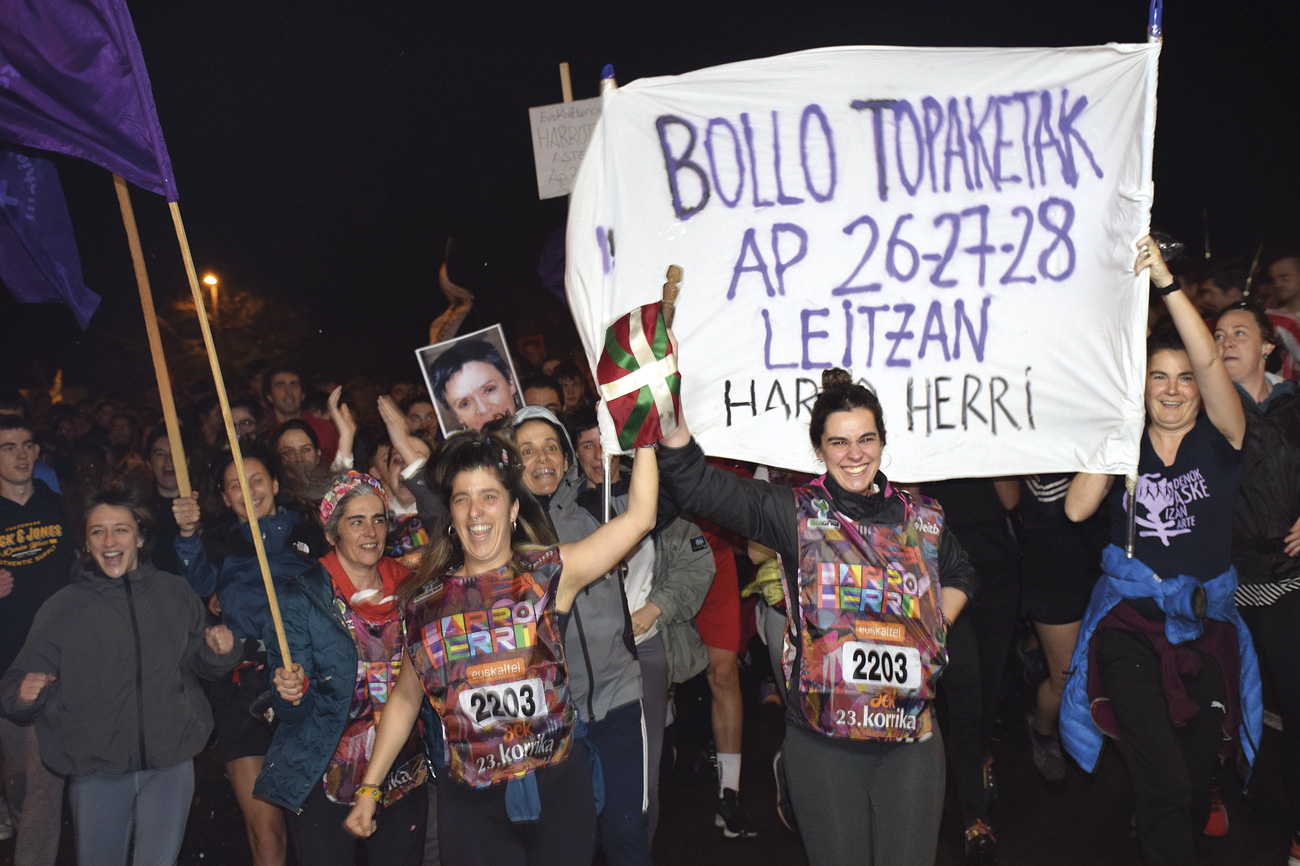“They let us be ourselves, but at home”
- Tania González (Tudela, 1986), together with other members, created the operator Kukuluak LGTBIQ+ in the periphery of Navarra, as he himself says. The objective of the group is to create safe spaces in Tudela and Ribera (Navarra). It is clear what direction the group should take to achieve the mission: “We continue to exist and we want to gain visibility to capture the public space and normalize our presence.”

Where was the Cogollo born? We created the group four
months before the closure. It arises from the need to create safe spaces and collective actions. We knew there are a lot of people from the LGTBIQ+ collective in the Ribera and Tudela, but until we created the group we didn't do things together. So we feel the need to create community.
Is it difficult to find safe spaces in Tudela and Ribera? I think it's harder in small towns and cities. However, there are
many realities around; in my case the family is a safe space, but for others it is not, and our goal is that it be especially safe for them.
You found support outside of Euskal Herria. Sexilium has always existed, and I think it's more common in smaller places. Thirteen years ago I left because I felt it would be easier to develop sexuality and social and political interests outside. I managed
to feel like I am in every way out.
How do you remember the previous years? It took me a lot to be comfortable in Tudela. It couldn't be
me, and I didn't feel part of Tudela. Adolescence was quite complex: I didn't find spaces for feminism and the LGTBIQ+ movement. That is why we have set up the Kukuluak group so that the same does not apply to others, so that they feel protected in their place of origin.
What challenges do you have? I often consult the agenda of other actors, but I think it is utopian for the same to apply to us. The main objective is to continue to exist as a group and achieve visibility in the public space to
capture streets and normalize our presence. We're organizing a lot of "besta drags" to reclaim public space, and that's where Cornelia Power is very present. I believe that our presence in the public space is not yet normalized in the periphery of Navarra.
"Adolescence became quite complex to me: I found no spaces for feminism and the LGTBIQ+ movement. That's why we've created the Kukuluak group so that everybody else doesn't have the same thing."
What about speech? Sometimes I would like to open a more elaborate speech, but we must create a discourse based
on the needs of space. That is why we believe it is better to move through different spaces to make them visible and open a deeper discourse at concrete moments.
It talks about the periphery. What is the socio-political situation like? It governs UPN,
a party that, as far as sexual dissent is concerned, does politically correct things because it is the minimum necessary. Tudela's institutions limit us to the private sphere. That is, they let us be ourselves, but at home. They try to discard everything related to Euskera, the LGTBIQ+ movement or feminism. They leave on their edges what is not a rigid cyseheteropatriarchal system. And more in rural areas.
He's told it's a rural bolle. Yes, but I do not particularly identify myself: I feel nothing rural. It is true that my reality is more decentralised, but I would not say that it is rural, because it is not rural to me. But I understand why the people in Pamplona say so. We are
remote.

Why do you think? Because, often, everything outside the Region of
Pamplona is considered as a rural area; in the end, the political and judicial power is centralised in Pamplona. However, I do not think that is a negligible comment. Historically it has been said that there are 100 kilometres from the Ribera to Pamplona and five hundred kilometres from Pamplona to the Ribera, because nobody wants to go down. The socio-political and emotional distance is very large and as distances are distorted, people do not approach the Ribera.
If you don't identify with the rural environment, what do you connect with? I'm a mouthpiece because it's a political choice. It's not just the person you like, it's the political burden behind it. I also like the peripheral ridge as a concept, because I create the discourse
from the territorial edge.
What is the place of this speech in the Navarre agenda? I think it is less taken into account involuntarily because
Pamplona has a very strong agenda, and we are not yet in that direction. However, it has changed in recent years. Pamplona has a speech, but there are many realities around it. We join because it is important to fight in the collective, but we have to adapt to our situation. Take the streets first: at the moment we are looking at the E28.
Seeking refuge
Gonzalez, a native of Tudela, had to leave thirteen years ago in order to live in freedom. First he found his place in Madrid and then in Mexico: “In Tudela I felt judged, it was my impression, but it is true that until I was 30 years old I returned from Mexico I did not start feeling part of Tudela.” He wants to drive change: to make Tudela and Ribera safe spaces for others, Cogollo has created the LGTBIQ+ operator. "I think the periphery is less taken into account, because Pamplona has a very strong agenda and we are not yet in that direction. Pamplona has a marked speech, but around it there are many realities. We join, because it is important to fight in the collective, but we have to adapt to our situation".

























